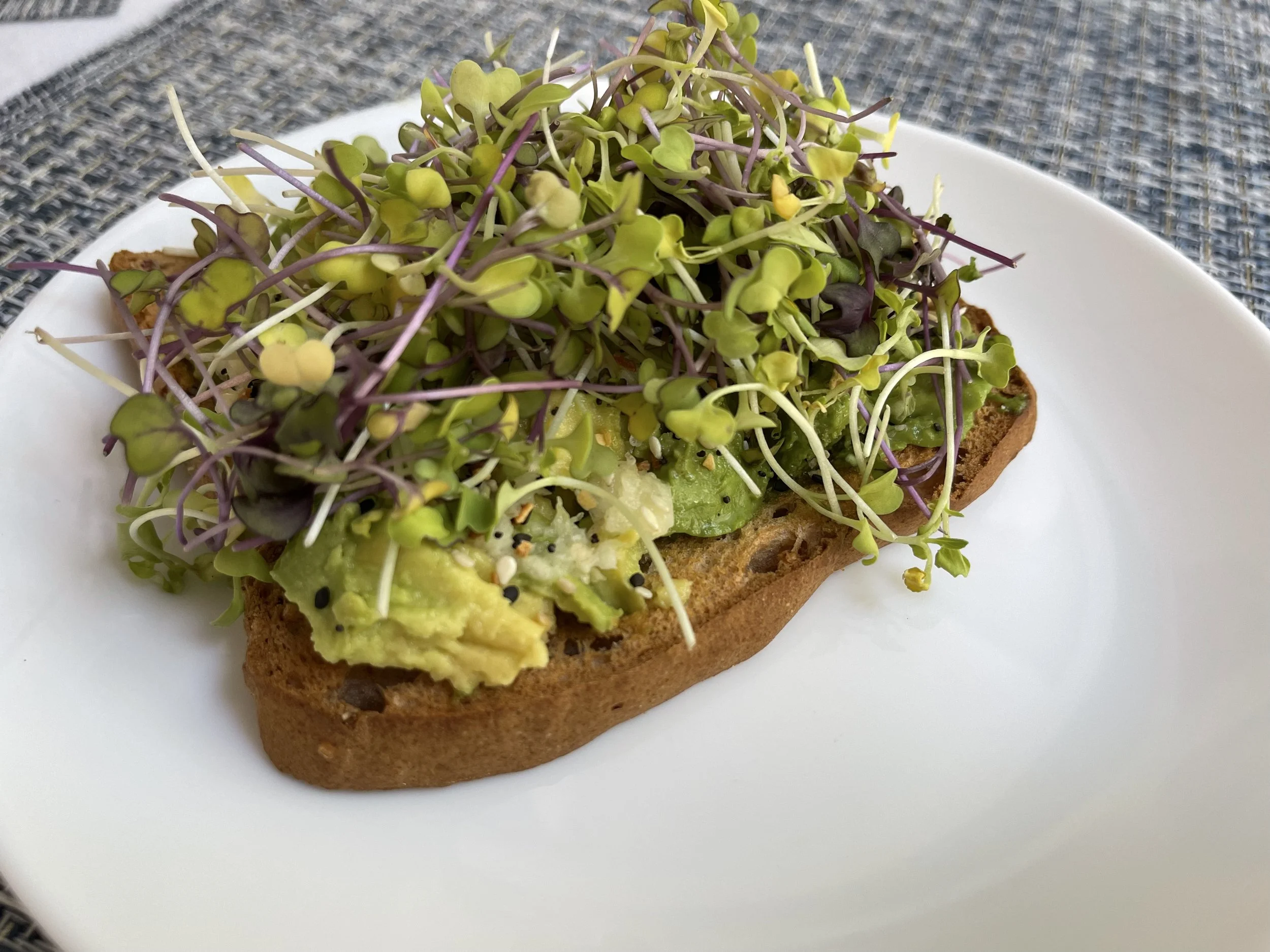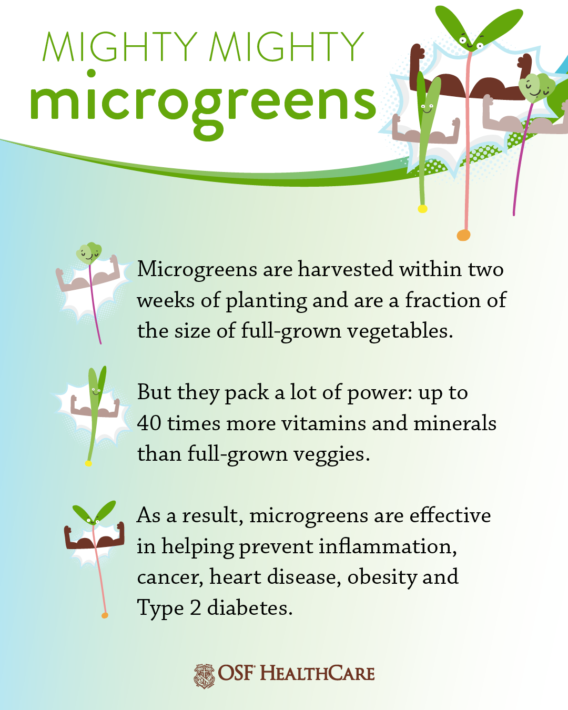Garlic Avocado Toast
Ingredients:
1-2 Slices of Bread (I used Little Northern Bakehouse whole grain bread)
4 Garlic cloves, smashed and allowed to sit for 10 minutes
1 Avocado, mashed
1/4 cup MicroGreens
optional to add Everything Seasoning
How to:
Toast your bread and when its ready mash your avocado into it creating a nice mash. Top with mashed Garlic. Add a sprinkle of Everything Seasoning if desired and finish with microgreens.
Why is this Good for the Immune System?
Garlic (Allium sativum)
When garlic is smashed and allowed to sit, the chemical conversion of allium to the bioavailable form Allicin is maximized.
A fresh bulbs main compounds are S-allyl-L-cysteine sulfoxide (alliin) and γ-glutamyl cysteine derivatives; When garlics cells walls are smashed/chopped/crushed, the oils contained react and release an enzyme alliinase, that catalyzes the formation of allicin. Allicin is active nutrient that garlic gets its positive health benefits from including:
enhance the functioning of the immune system by stimulating certain cell types, such as macrophages, lymphocytes, natural killer (NK) cells, dendritic cells, and eosinophils, by mechanisms including modulation of cytokine secretion, immunoglobulin production, phagocytosis, and macrophage activation [s].
modulates cytokine secretion and that such modulation may provide a mechanism of action for many of their therapeutic effects [s].
reduced cold and flu severity, with a reduction in the number of symptoms, the number of days participants functioned suboptimally, and the number of work/school days missed [s].
significant antiviral activity and can be used prophylactically in the prevention of viral infections [s].
Avocado (Persea americana)
Not only are Avocados a rich source of various nutrients including vitamins C, E, K, and B6, as well as riboflavin, niacin, folate, pantothenic acid, magnesium, and potassium. They also provide lutein, beta-carotene and Omega-3 fatty acids.
Its Avocado’s Omega-3 Fats that boost the greatest effects on our immune systems [s] Most namely;
the production and secretion of cytokines and chemokines, the capacity of phagocytosis, and the polarization into classically activated or alternatively activated macrophages.
provoke major alterations on gene regulation on macrophages.
their ability to reduce inflammation and their beneficial effect on inflammation-related disorders. Fatty acids EPA and DHA are able to suppress inflammasome-mediated inflammation.
In addition, Avocados are high in fiber (food for our microbiome). One avocado packs 13.5 grams of Dietary Fiber which approximately 63% insoluble and 37% soluble [s].
Insoluble fiber (adhering to water) increases digestive motility (the rate at which material moves through the digestive tract) and makes larger, softer stools that are easier to pass.
Soluble fiber (dissolves in water) creates a gel-like substance capable of binding to cholesterol, delaying glucose absorption and offering valuable nourishment for gut microbiota,
Microgreens
Microgreens are kinda like toddler plants, harvested 10 to 14 days after being planted. This makes them younger than baby greens (kids), but older than sprouts. (babies). Being so young, they have more nutrients. Researches have observed microgreens containing 3 - 40 times more vitamins and minerals than their full-grown versions. The nutrients that are most impactful for our immune system are: Vitamin C, Vitamin E [s], phytochemicals (e.g., carotenoids and phenolics), and certain minerals, including copper (Cu), zinc (Zn), and selenium (Se) [s].
Microgreens also offer a viable source of dietary fiber. As mentioned above, fiber is great for our immune system because it supports our microbiome by stimulating their growth and flourishment.


